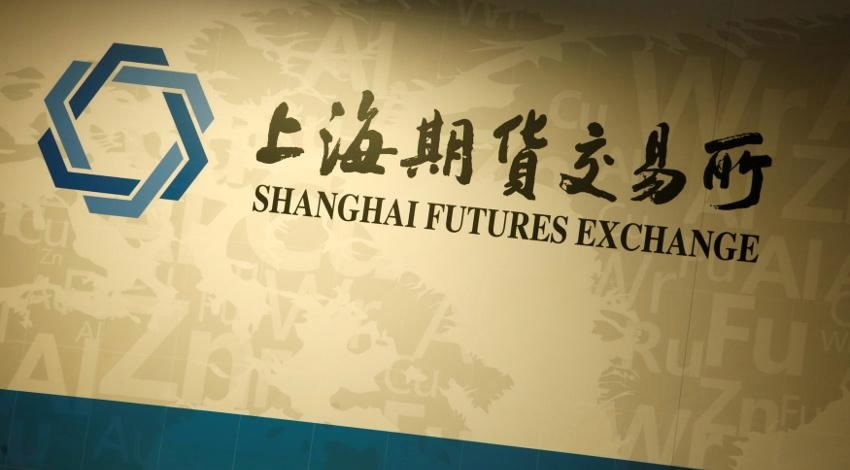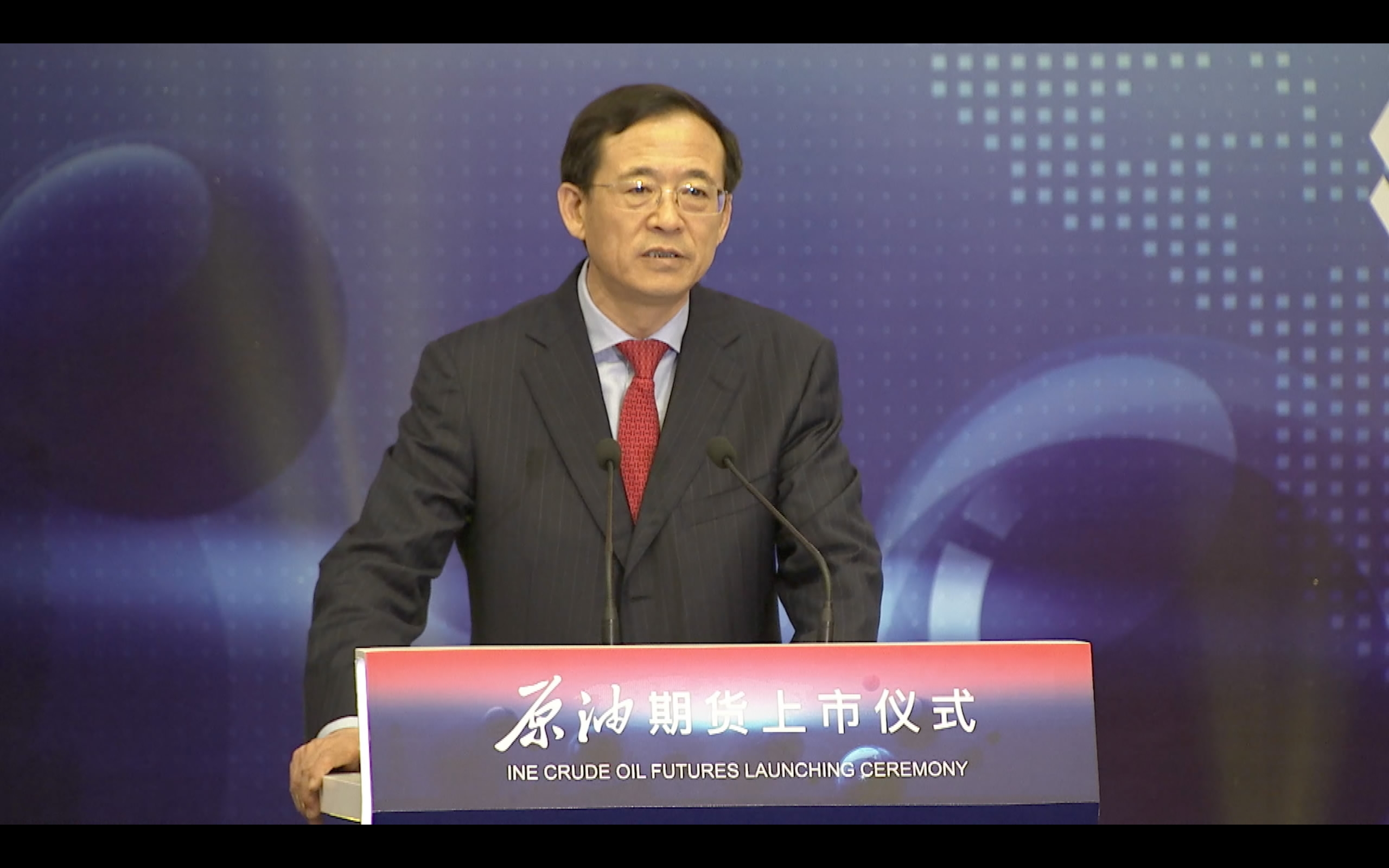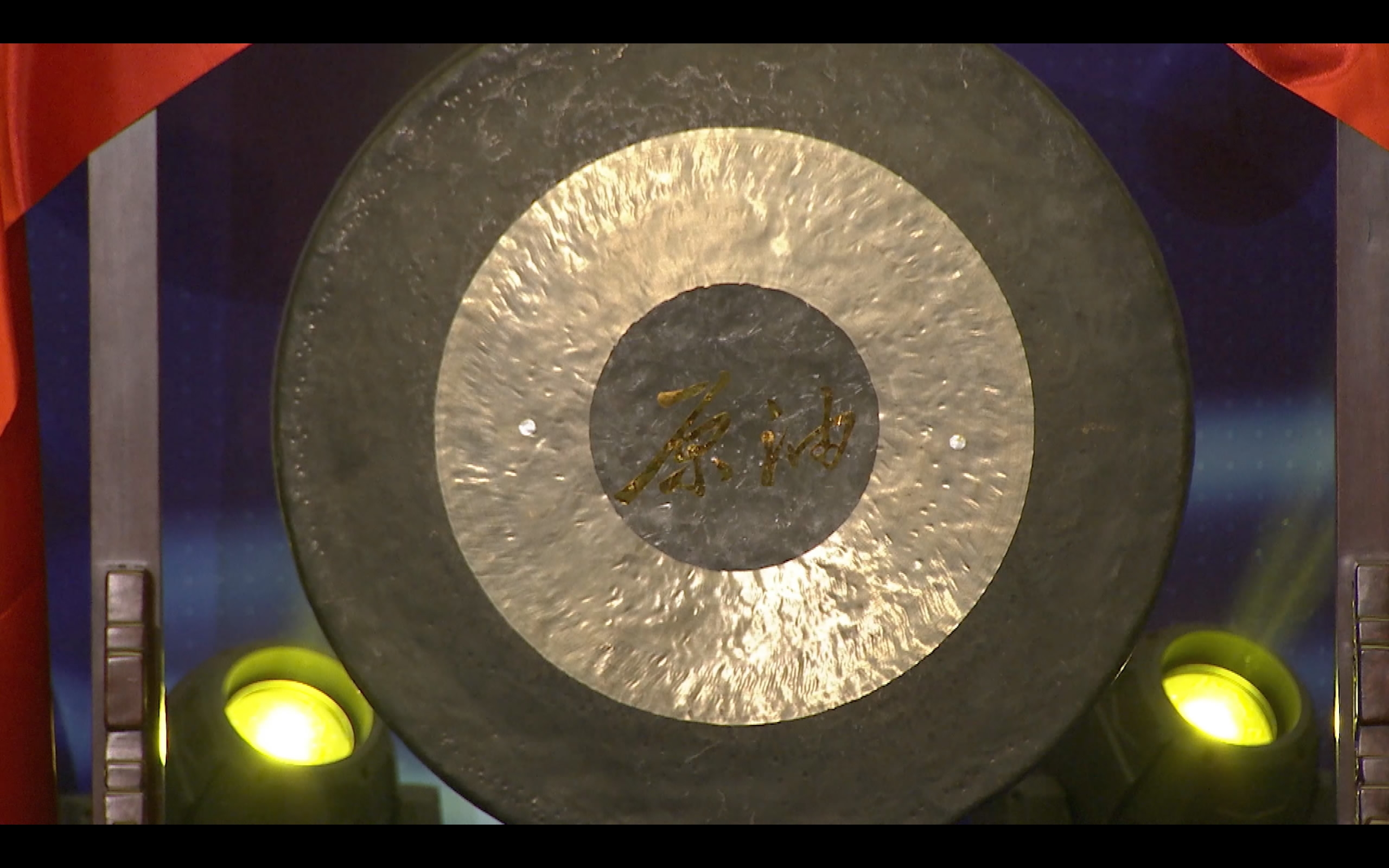
Business
20:26, 26-Mar-2018
China launches long-awaited oil futures
CGTN's Yang Chengxi

Since 2012, China has been planning to roll out its yuan denominated oil futures. On Monday morning the long-awaited Shanghai Crude oil contract finally launched. It made its trading debut on Shanghai's International Energy Exchange. By 11:30, trading volumes of the main contract reached 13.4 billion yuan.
“The launch is in line with directions from the government work report, symbolizing a further step in Shanghai to become an international financial center,” said Liu Shiyu, chairman of the China Securities Regulatory Commission, at the launching ceremony.
China is the biggest oil importer in the world. The country consumed more than 600 million tons of oil in 2017, about 70 percent of which was imported. China stands to benefit from its own benchmark trading in yuan, which would give it greater clout over pricing by the two established benchmarks, the Brent crude in London, and the West Texas Intermediate in New York.

China's securities regulator Chairman Liu Shiyu Speaking at the launch./ CGTN Photo
China's securities regulator Chairman Liu Shiyu Speaking at the launch./ CGTN Photo
"A third alternative benchmark will certainly increase the liquidity of oil futures market as well as the efficiency of the oil market,” said Wang Cong, a finance professor at the China Europe International Business School.
China will now become a part of the global oil price setting. Until now, Middle Eastern oil has been more expensive in Asia than in Europe, termed by economists as the “Asian Premium." China found itself in lack of a benchmark that would better reflect market conditions in Asia. Analysts believe the new contract will help address this situation.

This is China's first yuan-denominated commodities futures contract that is open to foreign companies, including investment funds, trading houses, and petroleum firms. It will join an array of yuan-denominated assets as the Chinese currency takes on a bigger role in global financial markets. "One of the great things about RMB is that it's not as volatile and it’s a good currency for mitigating foreign exchange risk,” said David Nealis, president of Ceres.
Investment bank JPMorgan is cooperating with the exchange to provide brokerage services for traders. "It is our ambition to supply access for our large and important client base. How it evolves over time with foreign participation, we'll have to wait and see,” said David Martin, Asia-Pacific head of global clearing at JPMorgan Chase.
Analysts say the newborn benchmark will soon face its first challenge: lack of liquidity. China has started to allow non-state-owned enterprises to participate in crude oil imports in recent years, but the industry remains very much dominated by state giants.

The newborn oil futures contract needs time to grow and mature./ CGTN Photo
The newborn oil futures contract needs time to grow and mature./ CGTN Photo
Some 413 companies participated in the trading on Monday, and more international players are waiting to come in and trade. "I've been traveling to the US quite a bit, as well as to Southeast Asia, and to Hong Kong, speaking with oil traders. There's definitely a huge excitement. People have been waiting a while for this to come out,” said David Nealis.
Analysts say China will need to work with other countries to sort out regulatory issues, in order to make the new contract more attractive to international players. The new benchmark will take time to grow and mature.

SITEMAP
Copyright © 2018 CGTN. Beijing ICP prepared NO.16065310-3
Copyright © 2018 CGTN. Beijing ICP prepared NO.16065310-3